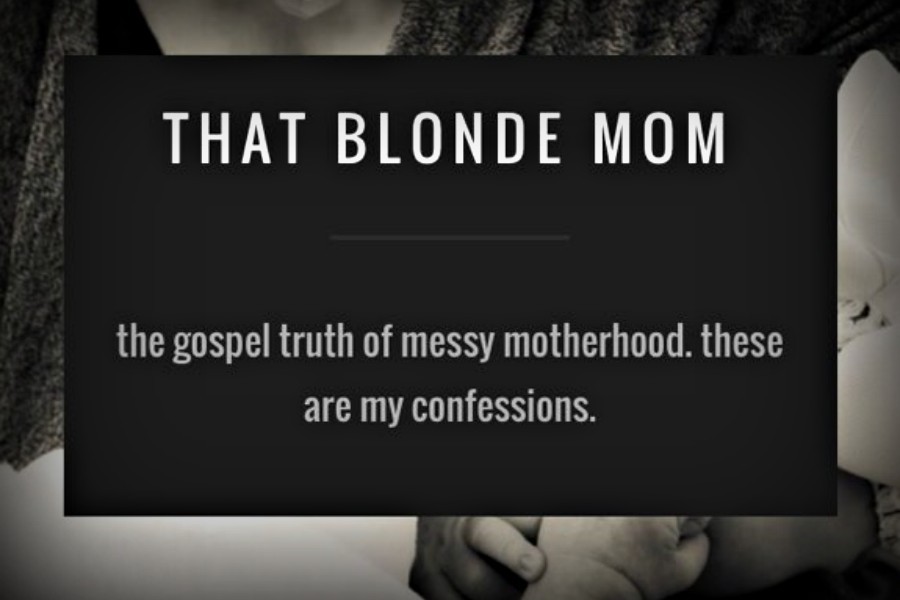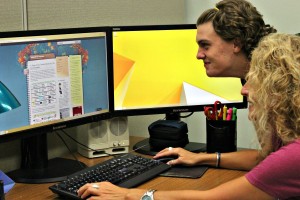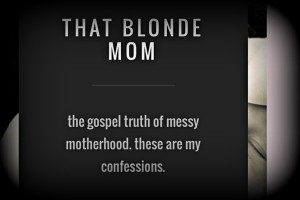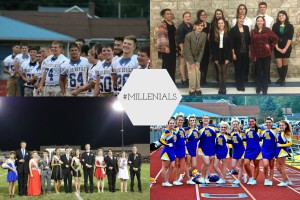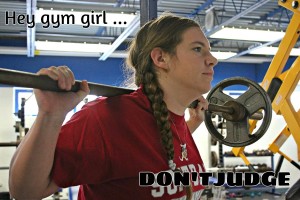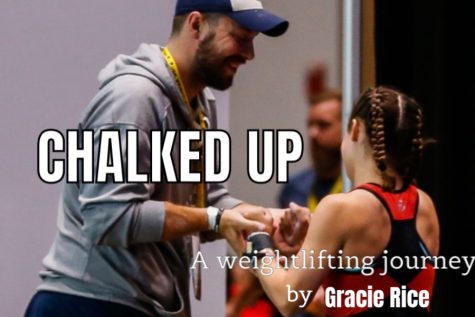Caricatures
Somewhere between the ages of 11-12, my family and I went to the mall for the day. I don’t remember much about the trip except that there was an artist doing caricatures of random people for just a few dollars. He was pretty good for as much as I could remember. My parents decided we could all get one done, and so we each took turns sitting for the artist as he did a caricature portrait of us. I remembered feeling self conscious as I sat wondering what he might notice about me to make stand out in his drawing, to make it clear that it was me. Would it be the prominent dimple in my chin? I’d always hated that, and had been mocked relentlessly as a child for it. Would it be my overdeveloped body for a 12 year old? Oyy, I hoped not. Or my glasses? Or pre-braces crooked teeth? But when he turned the drawing around minutes later, it was simple. I sighed in relief. It was me, but just barely. He didn’t do anything really to make me look silly or to make a mockery of me.
Then my Dad sat down. My Dad shaves his head bald and has a very expressive face. He is average height and weight for a man in his 40’s and, at the time, had a bushy fu manchu beard. When his picture was turned around we all about died laughing. His head was HUGE and peanut shaped! He laughed too, and to this day I can remember it exactly. It was a true cartoon version of my father.
A caricature by definition is basically a description or imitation of someone in which certain striking characteristics are exaggerated in order to create a comic or grotesque effect. This should be noted as not being limited to a street vendor making a ridiculous picture… but also, as something we do to one another.
I find that I am highly guilty of caricaturizing other people, it makes them easy to sort and file away in my brain to remember them by. You know how it is, someone says “Do you know so-and-so?” And you respond “Oh, you mean the guy with that weird laugh?” Or “oh yeah, that lady who talks to close and never brushes her teeth?” “The smart one?” “The drinker?” “The couple with the annoying children?” See my point. We organize people by certain descript qualities or features, and then we assign them those certain roles in our life.
Here’s an example in my life. Tonight my parents, husband, sister, and I were playing a game. I was keeping score and explaining it to them. My dad rolled the dice and I said a score for his turn, to which my sister said a different score. My dad interrupted and blurted out “I wouldn’t disagree. Abi is a math genius. Ehh, I probably shouldn’t have said that, huh?” He laughed, but a silence fell over the room. I actually was right. But it seemed moot to say anything thereafter. My ego was bruised. In my sister being regarded as “the genius” I felt it painted me as “the dumb one”. Even though all of that wasn’t said out loud, and probably not even thought by my dad (who, by the way, loves all of us and just said a poorly timed joke), it made the two of us feel caricaturized.
Now, It should be noted, my sister is actually incredibly smart and attended a private girl’s boarding school on full scholarship thanks to that. There’s no questioning her IQ. But it should also be noted that I am not bad at math or a simpleton. But in every family there is someone who has been dubbed “the smart one”. It’s not a sin, it’s just what we do. We like to categorize people.
My brother, for example, is also incredibly smart, but he’s not “the smart one”. He is good looking and very athletic. He is the only boy and the baby of the family. He is probably seen as “the athlete” or something along those lines.
Look at your own family, when you describe them to someone you have key things you touch on for each person. Some good, some bad. For example, my husband was apparently bad as a child and has been forever stamped that way when he is described by old teachers, and even when looking over childhood scrapbooks. It’s easy to do to people. My dad was the baby of his family, and “the favorite child”, while my mom was “the naughty rebellious one” of her family. These caricatures make for great ways to pick out the black sheep of the family, and the stars.
So, as I drove home from game night with my family, I wondered “what’s my caricature?” In my family description, what would be said of me? Who am I? “The young married one”? “The one with the kids”? “The one who used to be bad, but finally got it together”? “The one with oldest child syndrome”? “The bossy one”? “The one who went to college for only a year”? Certainly I would no longer be “the singer” “the actress” “the one with all the potential”? What could I look over in my life and say I’d accomplished for someone to stop and look over, and then identify me as… for my family to identify me as?
Even as I talked through this post with my husband I realized how I’ve caricaturized myself. I often depict myself as someone who is “just a wife and mom, who sometimes writes, sometimes sings… a ‘has-been’…” as if I have used up all my potential in life at only 22. Think about yourself, how do you paint yourself? You probably pick a few things and decide on a label for your life. It can bury you. And in turn, you will bury those around you.
And as I pondered this, I came to a very, very scary realization… one day I might make my daughters into caricatures of themselves for my own convenience… and then what would I miss about the true versions of them? What I mean to say is, when we turn someone into a caricature of their real selves, we miss out on who they really are.
My father comes from a family of 6 children, and my mom of 5. In those larger families, it’s especially easy to do this. There will be heroes and villains of every story in their childhood, and often the characters play the same role over and over. As adults, they have come to find that who they thought each other to be as children is not necessarily true. But overtime, who they really are has been lost based on assigning roles for each other to play in their pasts, and then continued on into every family gathering.
One year, my dad’s family got together for a holiday in Nashville at one of my uncle’s homes. I remember my dad’s eldest brother saying “let’s try to get to know each other, to not caricaturize each other and really get to know who we all are.” I remember a sense of freedom with that speech. It felt as if no matter who I had been believed to be before that, I could have a clean slate. A chance to announce my true self to my whole family without preconceived notions. It was a beautiful vacation thanks to that speech, and people in my family I had never given the chance to, and have never given me the chance, got a true and new look at one another. It brought so much healing to us all.
But it is easy to fall back into old habits… it is easier to identify each other with what they have done, what they have said, or worn, or how they’ve performed. It is easier to turn each other into caricatures.
So what can be done for this? How can each relationship I have be as free of generalization as it was on that vacation so long ago? How can I be sure to keep from deciding a “role” for each of my own children to play in our family? How can I keep myself from feeling that I am to fit a certain role in my family?
I don’t think I have the perfect solution, but what I think I have that is key is: awareness. I am aware that even though my sister is smart, she is also a brilliant painter, and barista. She has a flair for makeup, and is compassionate. She’s a great gardener, a chef in the kitchen, and a pretty good volleyball player. She’s a lot of things. AND she is smart. But that is not ALL that she is. I am aware to look for whatever else she is and may be. I am aware that she is a person, and not just a label.
I must be careful! I often find myself saying that my oldest, Isla, never did what our youngest Adi does. I have created a vision of who Isla is in my head, as I think I know her to be, but I have to leave room for her to be more. She isn’t finished yet. Things about her will come to be, and old things will change. And Adi will be her own person too, not in comparison to Isla, but on her own. I must watch that I do not choose, accidentally, their roles to play in our family. I must let them become who they are and embrace it fully. I can’t pick out a quirk, or a talent and assign it as their identity, for it is to miss out on all that they are to do so. It pigeonholes those around us to do so.
AND I must give myself the room to be more than what I have labeled myself as. I should give room to call myself more, to allow myself more, and to be free from the world, my family, and my own caricatures. I am not finished yet becoming who I am.
Be careful. For I have come to find, my father is more than the man with the cartoon peanut head.
And so are you.


